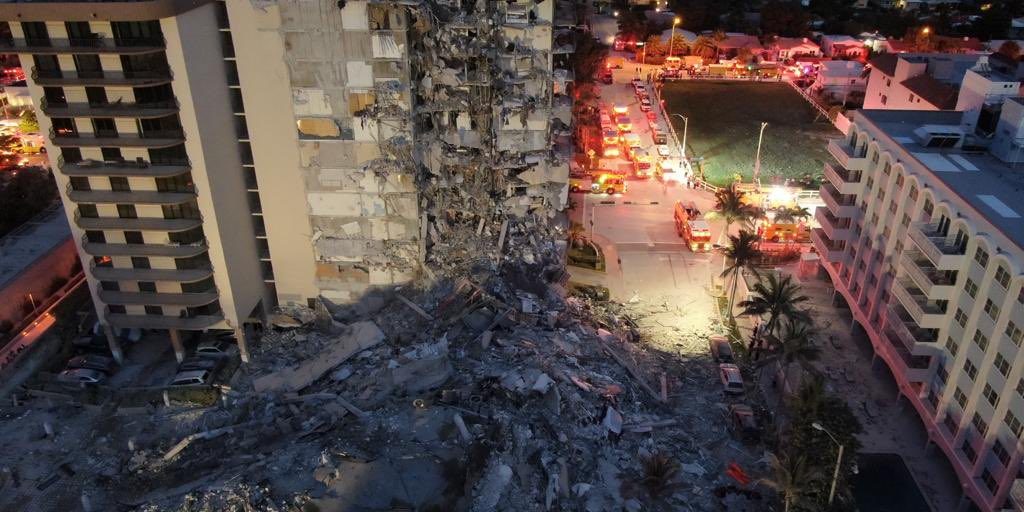Victims of Surfside condo collapse settle for nearly $1B in class action lawsuit
Nearly $1 billion—that’s how much victims of last year’s Surfside, Fla. condo collapse will receive, lawyers representing victims in a class action lawsuit announced unexpectedly Wednesday in a courtroom hearing.
At $997 million, it’s among the largest settlements from a single incident in U.S. history.
“We all know there is no amount of money in the world that can possibly compensate for some of the loss we’ve heard about in this case,” said Judge Michael Hanzman, who was presiding over the hearing at Miami-Dade Circuit Court. At the same time, the judge said, “This is a recovery that is far in excess of what I had anticipated.”
The settlement will involve contributions from insurance companies and developers of an adjacent building, among other defendants.
The lawsuit’s primary argument contended that poor construction when the structure was built in 1981 and delinquent maintenance over the years were exacerbated in 2016 during the development of Eighty-Seven Park, a highrise built next door. According to ABC News, the lawsuit argued that developers for the adjacent tower “improperly obtained the right to build higher and larger than originally entitled, including by buying a public street just a few feet from CTS’s foundation. Then they undertook destructive excavation and site work dangerously close to CTS, sloped their project so that water poured into CTS and corroded its structural supports, and drove sheet piles 40 feet into the ground, causing tremors and vibrations at such high levels that they cracked tiles and walls at CTS and shook the structure.”
The deterioration turned catastrophic when Champlain Towers South collapsed in the early morning hours of June 24 last year, killing 98 occupants including children and elderly residents. The tower was in the middle of a 40-year structural review required by Surfside and Miami-Dade County. At the time, the Florida county was one of two in the United States with such a law.
While the National Institute of Standards and Technology’s investigation of the collapse is ongoing, one aspect identified in a grand jury report proposing dozens of policy recommendations issued last December was degradation of reinforced structural supports due to long-term water penetration. The problem was reported in 2018 and noted to have substantially worsened a month before the collapse.
A $15 million repair program had been approved, but work hadn’t yet begun.




















